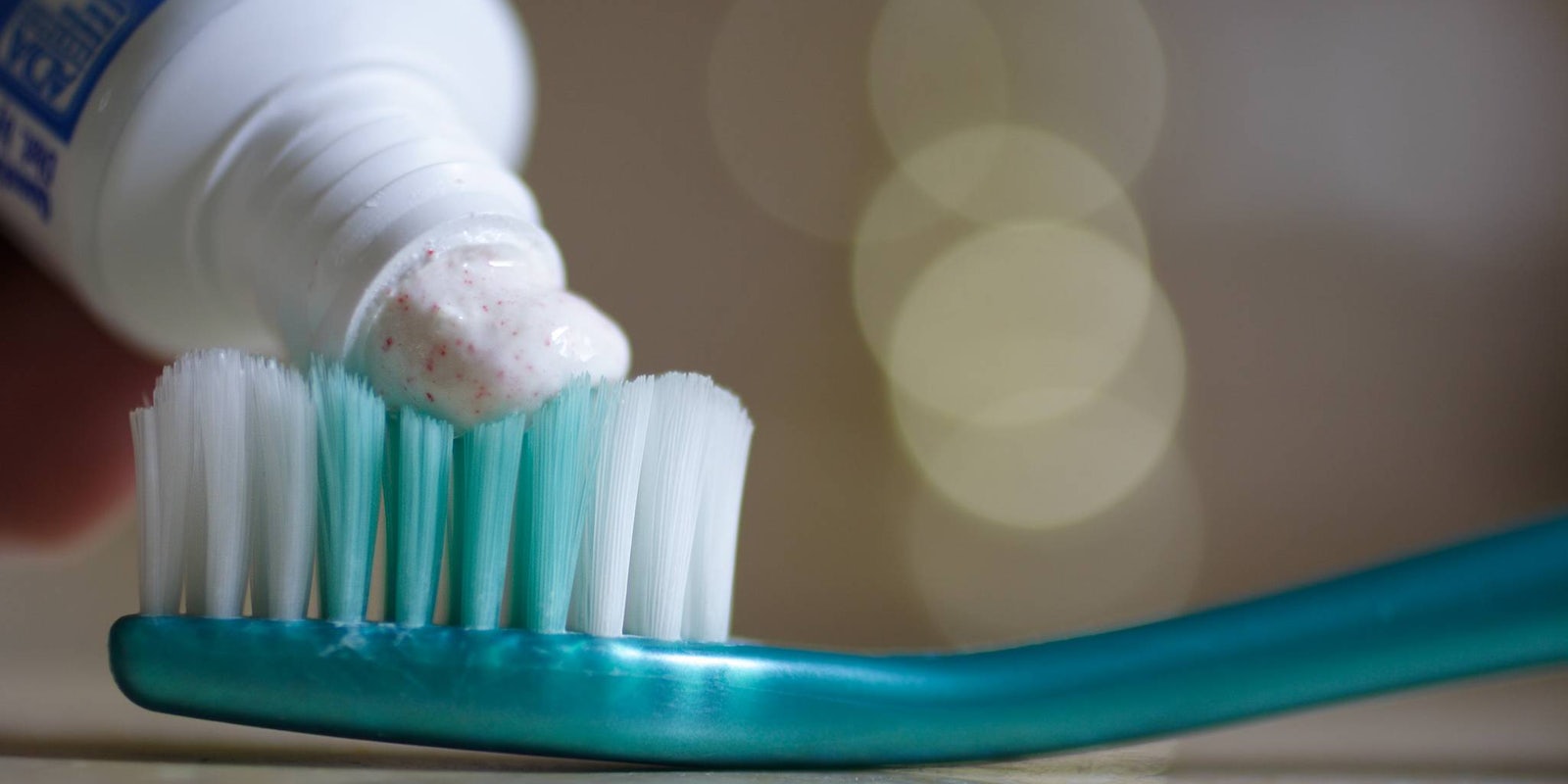The internet is full of home remedies for this or that. Among them are ways to get high-end skin care without the high-end price tag. These include using lemon juice as an acid peel, making your own sugar scrubs with actual sugar, and applying coconut oil to just about everything.
But if there’s one home remedy that seems to trump them all, it’s toothpaste. It’s one of those old tricks you probably picked up in your middle school bathroom while trying to pop a zit. Just dab a little toothpaste on and watch your whitehead shrivel like a raisin.
Here’s the thing, though: It is a bad idea to put toothpaste on your skin. While it probably won’t hurt you, it’s also probably not doing much beyond drying out your face and making it smell minty-fresh.
“There is no active ingredient in toothpaste that will treat acne,” Perry Romanowski, one of the cosmetic chemists behind the Beauty Brains blog, told the Daily Dot in an email. “It actually has ingredients in it that can irritate skin (e.g., sodium lauryl sulfate), and while it may dry out your skin, the irritation potential is not worth it. There is nothing in toothpaste that would make it work better than standard topical treatments.”
According to the Mayo Clinic, your typical over-the-counter acne remedies involve one or more of a certain set of ingredients that work to get rid of bacteria that cause the underlying acne, keep pores open, or to help remove excess oil on the skin and increase cell turnover rates. None of these ingredients are present in toothpaste.
The cool thing about over-the-counter remedies: They are reviewed and approved by the U.S. Food and Drug Administration. Acne treatments are classified as drugs, Romanowski said, so they must be proven safe and effective to hit the shelves.
So what should you do if you’ve got a huge zit and need it gone fast? First of all, don’t pop it. You’ll probably just make it worse. Use, you guessed it, an actual acne treatment, Romanowski said. The Mayo Clinic recommends starting with one that contains benzoyl peroxide, since it’s the best-tolerated treatment among most people. From there, you can move onto others. Just be sure to follow the instructions, stop if you have an adverse reaction, and talk to your doctor about your options for skin care.
Have a science question that needs clearing up? Ask me: ScienceQuestions@dailydot.com


